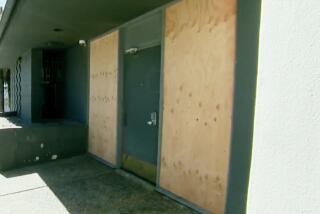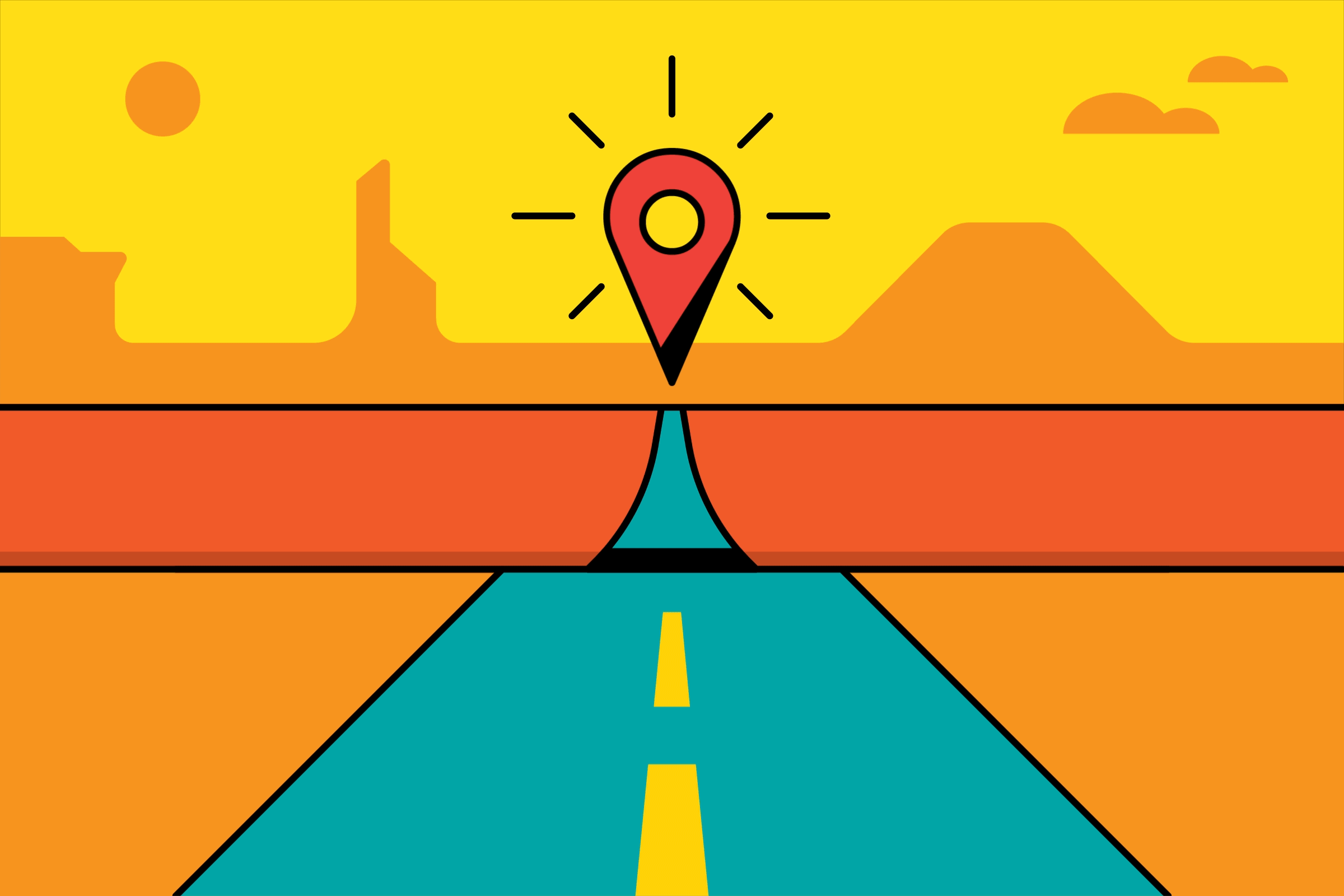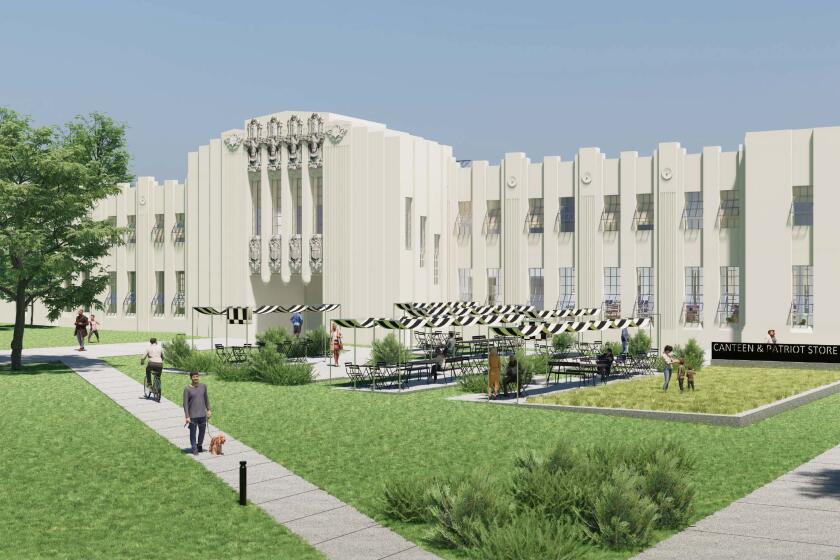A New Slant for Passover : Feminist Group Sets Aside a Cup for Women at Seder
Like Jews observing Passover all over the world, celebrants interrupted a recent pre-holiday Seder here to symbolically open a door for Elijah. By setting aside a cup of wine for the prophet, tradition teaches, Jews can hasten the coming of the messianic age.
At this particular gathering, however, a second cup was offered as well.
Filled with water, it was in symbolic recognition, the presiding rabbi explained, of Miriam, a “woman of vision” whose wells acted as way-stations for the ancient Israelites during their wanderings in the desert.
“Who on our own journey has been a way-station for us?” the worshipers were asked to consider. “Who has quenched our thirst for knowledge? To whom do we look for our female role-models?”
The season of Passover has arrived once again, but this time with a twist: Welcome to Orange County’s first feminist Seder.
“It’s a major event,” said Judy Glickman Zevin, co-founder of the recently formed Orange County Jewish Feminist Institute, which sponsored the gathering at the Jewish Community Center. “Women’s voices haven’t been heard in traditional Judaism; we’ve played a pivotal role (in Jewish history) but haven’t had the status of the male elite.”
Said Rabbi Sue Levi Elwell, the spiritual leader of an Irvine congregation who presided over the occasion: “The vibrancy of Jewish women has too often been kept in the home (rather than) as a full part of Jewish communal life. We refuse to have Judaism taken away from us.”
Orthodox rabbis disagree that the importance of women has been downplayed in traditional Jewish observance. To dramatize their claim that it has, however, members of the Orange County Jewish Feminist Institute chose to focus on Passover, generally the most widely celebrated Jewish holiday.
Beginning at sunset today, the eight-day festival commemorates the story of Moses leading the Jews out of slavery in Egypt some 3,000 years ago. After wandering for 40 years in the desert, Biblical accounts say, the Jewish people arrived in the Promised Land and created the nation of Israel. Today Jews commemorate the event as a celebration of freedom by conducting one or more Seders--ceremonial meals during which the story is retold and certain foods consumed in symbolic re-creation of the exodus.
Traditionally, Jewish feminists say, women have spent more time in the kitchen preparing the Passover meal than appearing in the pages of the Haggada, the “guidebook” by which the Seder is conducted. “We sometimes wonder,” Elwell said, “whether we were there at all as (the Jews) came down from Sinai. The answer is, yes, we were there!”
Last week’s Seder, held a few days before the actual holiday to allow participants to incorporate elements of it into their own home Passover celebrations, vividly reflected feminine involvement. Attended by about 100 people, including a handful of men, the Seder was planned by women.
Rather than being conducted, as tradition dictates, by the male head of the household, the service was overseen by a female rabbi and cantor. And at several points, the liturgy departed from the traditional to point up specifically feminine issues and concerns.
In addition to the questions traditionally asked by children during the service regarding the origins of Passover, for instance, there were these: Why does the “modern world” still view women in relation to a male norm? And why is it that despite our “advances,” women still feel unsafe walking home at night?.
And during the naming of the 10 plagues believed to have been inflicted by God on the ancient Egyptians for their treatment of the Jews, celebrants added such modern-day concerns as the blood of women forced to have illegal abortions, the pestilence of chemicals which plague our reproductive systems . . . and the subliminal messages of society which glamorize the thin, “youthful” ideal and persuade us to spend millions of dollars on beauty products and surgery that damage and deform our bodies.
Some Orthodox Jews object to such formulations as unnecessary revisions of a tradition that, they maintain, is not now and never has been exclusive of women.
“Women are very much included in Judaism,” said Rabbi Moishe Engel, director of adult education at the Hebrew Academy in Westminster. “(The religion) recognizes their feminine needs, their spiritual natures and their connection to God, which is of primary importance.”
Chana Rachel Schusterman, a former teacher now married to an Orthodox rabbi, believes that some Jewish women have lost a sense of their own importance in the religion because traditional beliefs and practices have not been fully handed down to them.
“The center of Judaism is the home and not the synagogue,” Schusterman said. “Women are seen as central in giving over the tradition and maintaining the values of the family; they are very highly regarded and respected.”
In fact, the principal celebration of Passover is the Seder, a home-based rather than temple-based observance.
And Orthodox Jews are reluctant to publicly criticize what they see as a genuine search for Jewish values. “I may disagree with their approach,” said Rabbi David Eliezrie, director of the North County Chabad Center in Yorba Linda, “but I deeply respect the quest of these women to expand their Jewish observance and identity.”
For many of the women, the quest seemed to be working.
“I think this is beautiful,” said Jane Bernhardt, 42, a Passover celebrant from Irvine. “It’s rich with a very full and loving interpretation of Judaism. It’s really unimaginable; I feel a really warm welcome to myself as a woman.”
Seder Meal
Passover begins at sundown today with a ceremonial dinner called the Seder. Rich in symbolism, a Seder Plate is prepared with ceremonial foods, which are referred to at specific points during the reading of the Haggada, the story of the Jews’ enslavement in Egypt 3,000 years ago and their escape to freedom under Moses’ leadership.
Roasted lamb shank bone: Symbolizes the sacrificial lamb whose blood was smeared above the doors of Jewish homes in Egypt so the Angel of Death would know to “pass over” these homes when he killed the Egyptians’ firstborn. This was the last and most terrible of the 10 plagues sent by God to persuade the Egyptians to free the enslaved Jews.
Haroset: An apple-nut-cinnamon-wine mixture symbolizing the bricks and mortar Jewish slaves used to build the pyramids in Egypt.
Parsley and salt water: Parsley or celery is dipped in salt water to recall the tears shed by Jews under Egyptian bondage.
Horseradish: Eaten to recall the bitterness of slavery.
Roasted or hard-boiled eggs: Symbolizes the free-will festival offering which accompanied the sacrifice of the Paschal lamb in the Temple.
Wine: Four cups are drunk by each person at specific moments during the meal. An extra cup is placed on the table for the prophet Elijah, who, it is believed, will pave the way for the coming of the Messiah.
Matzo (unleavened bread): During the eight days of Passover, no leavened foods, such as bread, are eaten. Unleavened bread, such as matzo crackers or meal, recalls the hasty flight to freedom of the Jews, who had no time to let their bread rise when the moment came for them to quit Egypt.
Source: The American Book of Days
More to Read
Sign up for Essential California
The most important California stories and recommendations in your inbox every morning.
You may occasionally receive promotional content from the Los Angeles Times.










